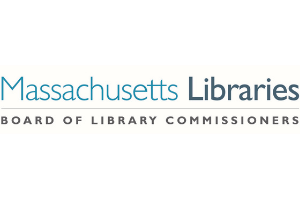MBLC: Expanding accessibility across Massachusetts libraries


The Client:
The Massachusetts Board of Library Commissioners (MBLC) organizes, develops, coordinates, and improves library services, so every resident of Massachusetts has full and equal access to library resources. Since 1890, MBLC has supported 369 public libraries across Massachusetts who serve more than 37 million total visitors each year.
The Challenge:
Improving access to digital library services is top of mind for MBLC’s Head of Library Advisory and Development, Rob Favini: “Easing the digital divide is a main focus as we work to improve access to libraries.”
In order to serve all residents — regardless of age, ability, or means of access — MBLC knew that when they looked to increase digital access, they would need to consider accessibility.
When Lyndsay Forbes, MBLC Project Manager and Grants Specialist, thinks of accessibility, she thinks of Perkins as the “go-to” organization leading the way. In order to support their member organizations — and ultimately all Massachusetts residents — MBLC partnered with Perkins to train staff across the state and equip them with hands-on skills to improve accessibility at their own libraries.
The Solution:
Before the training took place, Perkins Access set out to understand the community and their needs by conducting a custom survey that unearthed gaps in both knowledge and skills, in order to identify what training would best support libraries in their day-to-day. Extensive research and planning ensured that the training met the needs of MBLC’s unique community, and resulted in enthusiasm about — and strong attendance for — the twelve-session training series.
“Perkins Access showed genuine interest in learning about our needs, and they were inquisitive throughout the process to ensure they understood our audience,” said Favini. Forbes added, “Perkins really got into how people use different products, going beyond what tool is being used to uncover the process and people involved.”
Geoff Freed, Director of Perkins Access Consulting, explained that “Researching the needs of the audience is how we build successful training programs that meet attendees where they are. It helps us refine the skills that they already have, as well as demonstrate new approaches to better use the tools they’re familiar with.” Freed added, “Training the library community on accessibility was especially fulfilling for me, because at Perkins School for the Blind, we believe every child has the right to learn, and expanding library access helps further that mission.”
The Outcome:
“Libraries have always been interested in being accessible to everyone, but the pandemic exacerbated the need to reach people in new, digital and virtual ways, and shined a light on opportunities to improve accessibility,” said Forbes.
While most libraries wanted to improve their accessibility, it was overwhelming to dig into. With the training complete, the library community has a foundation of knowledge and skills to get started.
Forbes said, “Accessibility is now digestible and easier for our community to understand and address. Now that they have the proper introduction, resources and best practices, they can figure out where to improve and weave accessibility in. They have the roadmap and know where to go.”
Favini commented on the length and breadth of the sessions, sharing that he “appreciated how comprehensive the training was and the array of topics it covered. It wasn’t a one-day event, it was a true series that attendees could opt-in to based on their needs.”
Attendee engagement across the series was an encouraging outcome for Favini, who said, “The sessions were incredibly well attended, which validated both our effort to prioritize accessibility training and our choice in a partner to bring the series forward.”
Training attendee and Reference Librarian at Forbes Library, Benjamin Kalish said, “I have never had so many of my colleagues active and interested in learning about accessibility. It’s been fantastic.” He added, “Improving the accessibility of library services is one of the most important things we can do as librarians.”
Beyond the array of topics covered, there was also a variety of library types that benefited from the training – including public, school and academic libraries, as well as the patrons they serve.
When reflecting on the project and partnership overall, Forbes said, “Perkins Access was incredibly easy to work with in terms of meeting our processes.” Favini added, “Perkins Access is the unicorn out there who takes the lead and makes everything happen smoothly.”
